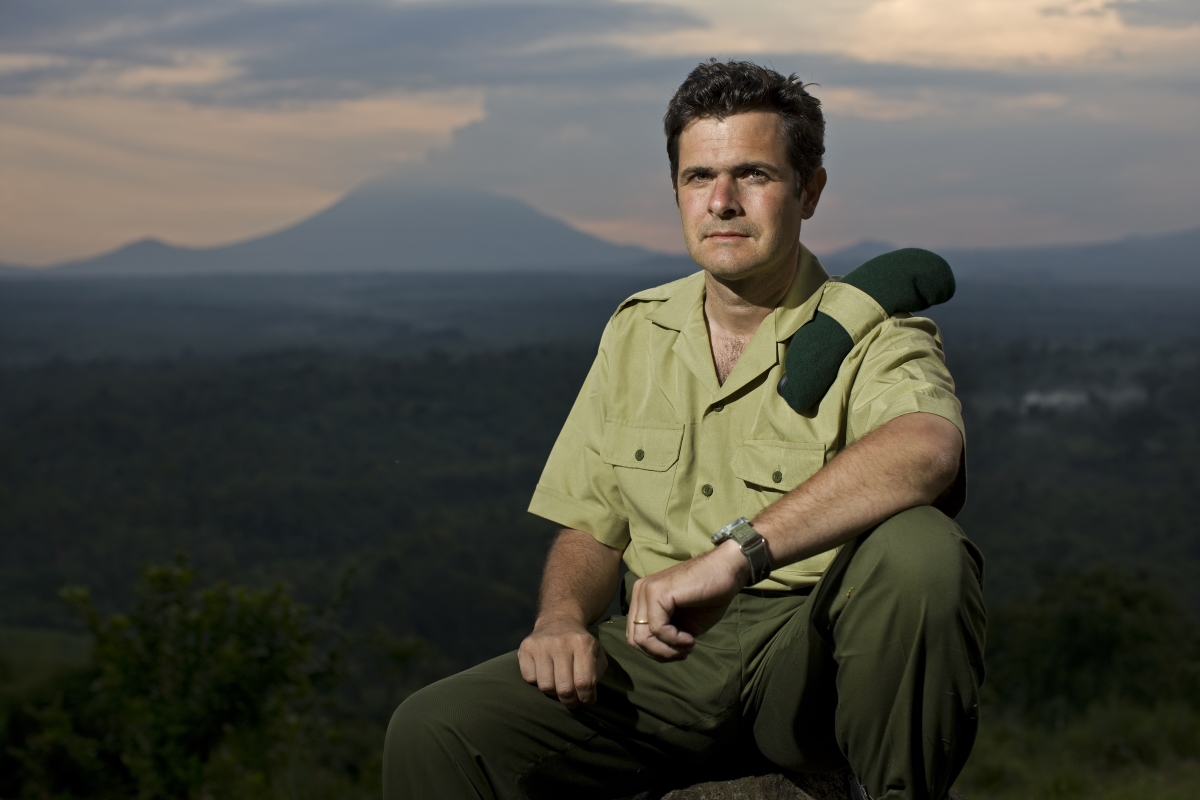Virunga: A Tale of Compelling Risk

Emmanuel de Merode, the Director of the Virunga National Park since 2008. Credit: ©Brent Stirton/Getty Images
Located in the eastern Democratic Republic of Congo, Virunga National Park is Africa’s oldest national park. It is a critical habitat for many species, including the highly endangered mountain gorilla, of which barely 800 survive in the wild.
In the summer of 2013 an investigative filmmaker, Orlando von Einsiedel, approached the Arcus Foundation (the world’s largest funder of ape conservation) with disturbing news: a British company, SOCO, was illegally exploring Virunga National Park with an eye towards developing it as an oil field. Such development would destroy this critical habitat and likely prove a death blow to the mountain gorilla. Through courageous undercover work, Orlando had captured on film strong evidence of illegal activities by SOCO in Virunga. He had secured funding and made significant progress in the development of the film, but was running out of money and might not be able to finish his documentary. Could we help him complete the film?
This request took us into uncharted waters. Arcus had little experience with funding films. Like so many other foundations we had always said “we don’t fund films.” We knew nothing about the filmmakers and precious little about “impact producing,” a new term describing programmatic efforts to make sure films have an impact once finished. Would the story be compelling? Would the fiscal sponsor, BRITDOC, offer the guidance and backing necessary for the film to stand out in the highly-competitive field of documentary films? Could the film have the impact it needed to help environmental defenders actually save the park?
Ultimately, we faced up to what some ethicists would call a “choiceless choice,” i.e. something that appears to be a choice but really isn’t. Our mission compelled us. The last redoubt of the mountain gorilla was under assault, and we couldn’t sit this one out. So we made a $125,000 grant to BRITDOC to enable Orlando to finish the film and for its impact producing partner, Joanna Natasegara, to develop and implement an impact plan.
We realized what was at stake the night of the film’s premiere at New York’s Tribeca Film Festival in April 2014. That morning we got news that the “star” of the film, Emmanuel de Merode (Superintendent of the Virunga National Park), had been seriously wounded in an assassination attempt, with some suspecting his shooting was linked to his vocal opposition to oil exploration in the park (Emmanuel was ambushed shortly after he left a government building where he participated in a meeting regarding illegal activities in the park).
This subject matter of our modest film project had become a life-and-death issue.
The story has a very happy ending. Emmanuel recovered from his wounds. The film, Virunga, rapidly earned critical acclaim. Leonardo DiCaprio came on board as an Executive Producer, Netflix picked up the film for worldwide distribution, and it was nominated for the 2015 Academy Award for Best Documentary.
Best of all, after their deeds were brought to light, SOCO announced that the company would cease oil exploration in the park.
Arcus learned a critical lesson from this experience. Like most foundations, we talk a lot about supporting risk taking but in practice we get scared when asked to do so. What will our Board say if we fail? We learned from Virunga to put our grant-making money where our mouth is and take more risks to advance our mission.
Sometimes as a grantmaker you have to go outside of the comfort zone of the “usual suspects” you support and fund projects that are risky but mission-critical. Our advice to you? Stop fretting about taking risks and just do it. You may find yourself at the Academy Awards if you do.
Kevin Jennings is Executive Director of the Arcus Foundation and a Member of the Council on Foundations Board of Directors.
